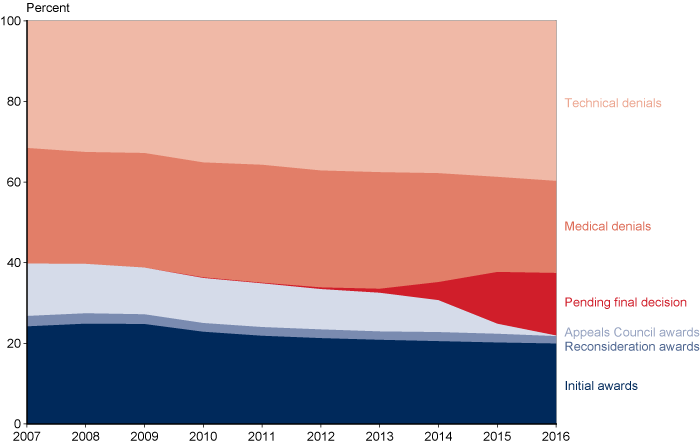From a contracting notice recently posted by the Social Security Administration:
:
:
: ...
Single Award Cost Plus Fixed Fee 5-year Contract for Retaining Employment & Talent After Injury/Illness Network (RETAIN) Evaluation - This is a joint project between SSA, the Department of Labor (DOL), and several states. The purpose of the contract is to evaluate the impact of the various interventions implemented under cooperative agreements between the states and the DOL.I hope this study shows that early intervention works but let me list just a few of the reasons I don't think it will work very well:
- Most people who become disabled are disabled by degenerative conditions, like diabetes or osteoarthritis. These conditions just get worse with time. Rehabilitating people with this sort of problem isn't realistic. As soon as you get them able to do a new job, their condition has worsened to the point they can't do it.
- Pain is a huge factor in producing disability. No intervention can take away the pain. If pain prevents one type of work, it's almost certain to prevent other types of work.
- Mental illness is a major cause of disability. It’s not so amenable to intervention that helps to preserve the ability to work.
- People with below average cognitive abilities are dramatically over-represented among the population of people who apply for Social Security disabilities. That's because their limited intellectual abilities limit them to simpler, more physically demanding work to begin with and make it almost impossible for them to switch to other less demanding work.
- This whole concept is based upon a misunderstanding of who applies for Social Security disability benefits and why they apply. Those who support this think that most disability is due to trauma and that if you can just help people figure out what they can do despite their injuries and give them a mobility scooter or whatever that they can go back to work. The thing is that the 12 month duration of disability requirement in the definition of disability that is written into the Social Security Act means that folks who are disabled by trauma either go back to their old jobs or figure out something else they can do on their own or with the help of programs that already exist well before 12 months have passed. I don't know that there's anything new that can be offered to help people in this situation. If you wanted to do something useful, you could better fund state vocational rehabilitation agencies. Besides, it's such a small component of disability that it doesn't matter that much anyway.
- In any case, as far as I'm concerned, Mathematica is nothing more than a Beltway Bandit. They get lots and lots of government contracting money but nothing they do ever helps anyone.


